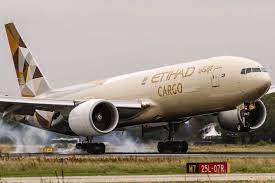London January 16 2022: GlaxoSmithKline (GSK.L) on Saturday said it had rejected a 50-billion-pound offer from Unilever (ULVR.L) for its consumer goods arm, saying it “fundamentally undervalued” the business and its future prospects and that it would stick to its plan of spinning off the unit.
Unilever confirmed the approach earlier on Saturday, saying the Glaxo unit would be a “strong strategic fit” as it continues to re-shape its portfolio spanning food, beauty and home care brands.
A L S O || R E A D
Unilever eyes GSK’s consumer goods arm in possible 50 billion-pound deal
A deal of this size would be the biggest globally since the start of the pandemic, if it goes through. It could also transform Unilever into a formidable beauty and personal care purveyor, taking on the likes of Estee Lauder and L’Oreal, while for GSK, it could bring much needed relief from investor pressure that has been building over the past year.
GSK said it had received three bids from Unilever, the latest on Dec. 20 comprising 41.7 billion pounds in cash and 8.3 billion pounds in Unilever shares, which failed to reflect the intrinsic value of the business and its potential.
“The Board of GSK therefore remains focused on executing its proposed demerger of the Consumer Healthcare business … on track to be achieved in mid-2022,” the statement said, adding that it was confident the business would beat global market growth rates in the medium term.
The group’s consumer goods business is due to be spun out into a separate listing in the middle of this year.
Earlier, Britain’s Sunday Times said the Unilever bid for the business made late last year was worth roughly 50 billion pounds, and had been rejected as too low by GSK and Pfizer (PFE.N), which owns a minority stake in the division.
The approach by Unilever, which owns brands such as Dove soap and Marmite, for Glaxo’s portfolio of household brands including Panadol painkillers and Sensodyne toothpaste was understood to have been unsolicited, the report added.
The bid did not include any takeover premium or recognition of synergies, the newspaper said, adding that it was not clear whether the group would make a higher offer.
Dave Lewis, who is due to head GSK’s consumer health unit, declined to comment on the approach. The former boss of UK grocer Tesco (TSCO.L) said the matter was for GSK’s board.
Unilever declined to comment on whether it would return with a higher bid. “There can be no certainty that any agreement will be reached.” Brokerage Jefferies last year put a valuation for the whole consumer unit at 45 billion pounds.
If a deal goes through, GSK’s consumer health unit’s brands would likely be incorporated into Unilever’s Beauty and Personal Care business, its biggest by sales.
Performance in the unit, which sells Dove, Lifebuoy, Axe and Vaseline, has been tepid during the pandemic as fewer people venture out or attend social occasions, while higher costs of plastics and petrochemicals have also dented margins.
In its most recent quarter, Beauty and Personal care volumes fell 1.3% while prices rose 3.9%.
INVESTOR PRESSURE
Unilever’s Chief Executive Alan Jope is under pressure to turn around its languishing stock price as it struggles to compete in the face of high inflationary costs, especially in emerging markets, its biggest source of revenue.
The FTSE-listed conglomerate’s stock has fallen 10% over the past year compared with P&G’s 18% rise and Reckitt’s 1.4% decline, despite a pandemic-driven boost in shopping for groceries and household goods that has benefited all three companies.










